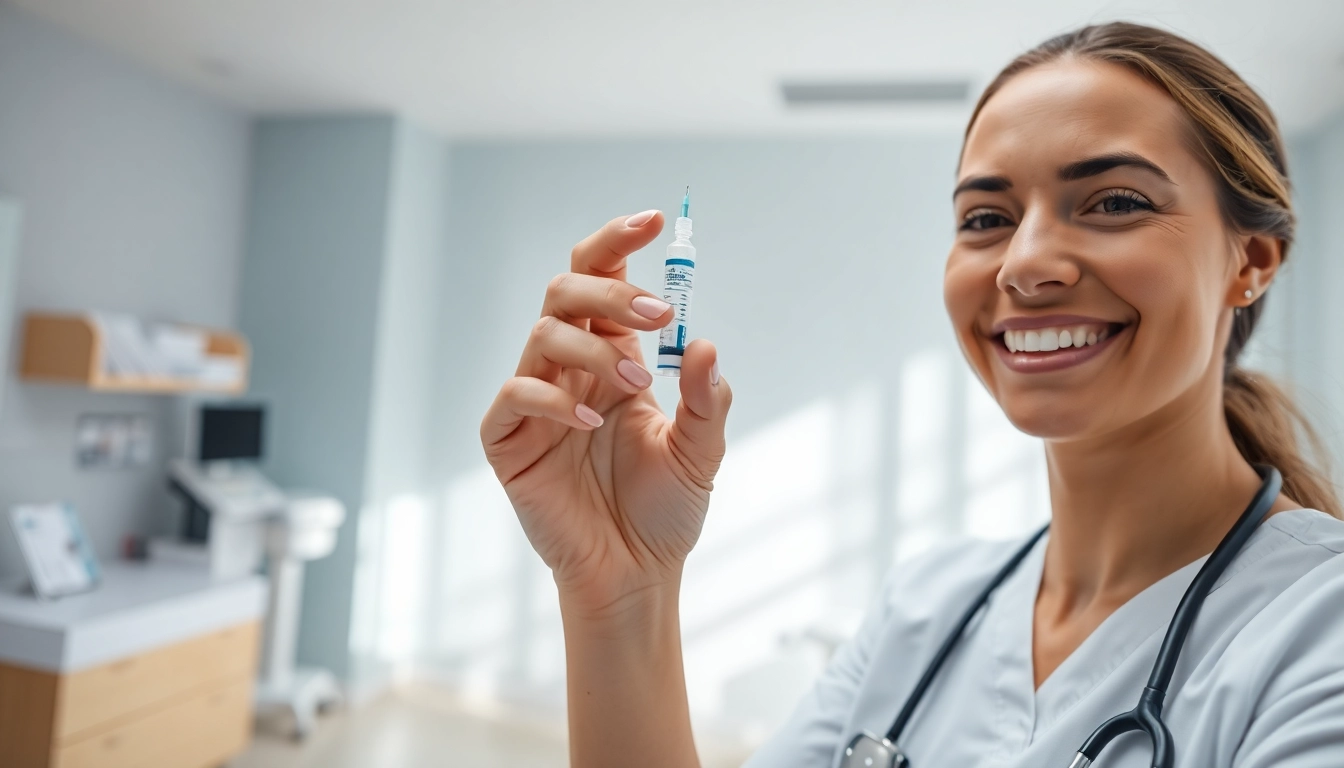Introduction to Testosterone Shots
Testosterone is often labeled as the quintessential male hormone, but its significance extends far beyond gender. In both men and women, testosterone is integral to numerous bodily functions and plays a pivotal role in influencing overall health and well-being. For individuals experiencing low testosterone levels, Testosterone shots offer a therapeutic solution that can potentially restore hormonal balance and enhance quality of life. This article delves into various aspects of testosterone shots, including their benefits, risks, administration methods, and their role in a holistic health approach.
What Are Testosterone Shots?
Testosterone shots, also known as testosterone injections, are a form of hormone replacement therapy (HRT) designed to alleviate the symptoms associated with low testosterone levels. These injections involve administering synthetic testosterone directly into the muscle, leading to increased hormone levels in the bloodstream. Depending on individual need, these shots can be given in different forms, such as testosterone cypionate, testosterone enanthate, or testosterone undecanoate. Each type varies in its absorption rates and duration of action, making it essential for patients to discuss options with their healthcare provider.
Who Can Benefit from Testosterone Shots?
The primary beneficiaries of testosterone shots are those diagnosed with hypogonadism, a condition characterized by insufficient testosterone production. However, individuals suffering from related conditions, such as obesity, type 2 diabetes, or age-related testosterone decline, may also find relief through this therapy. Symptoms that may indicate the need for testosterone shots include:
- Fatigue and decreased energy levels
- Reduced libido and sexual dysfunction
- Loss of muscle mass and strength
- Mood disturbances, including depression or irritability
- Increased body fat
Before beginning testosterone therapy, a thorough assessment conducted by a healthcare professional is crucial to confirm low testosterone levels through blood tests.
How Are Testosterone Shots Administered?
The administration of testosterone shots is typically performed by a qualified healthcare provider in a clinical setting. However, some patients may be trained to give themselves the injection at home. Here are the basic steps involved in administering the shots:
- The injection site is generally in the muscle of the thigh or buttock, which is cleaned with an antiseptic wipe.
- The appropriate dose of testosterone is drawn into a syringe.
- The needle is quickly inserted into the muscle at a 90-degree angle.
- The testosterone is slowly injected.
- The needle is removed, and pressure is applied to the site using a gauze pad.
A common schedule for testosterone shots is every two to four weeks, depending on the type of testosterone used and the individual’s response to treatment.
Benefits of Testosterone Shots
Improved Energy and Mood
One of the most notable benefits of testosterone shots is the improvement in energy levels and mood. Many individuals report that testosterone therapy helps alleviate feelings of fatigue and malaise, leading to increased motivation and productivity. Enhanced testosterone levels have also been linked to mood stabilization and reduced symptoms of depression. With restored hormonal balance, individuals often experience greater emotional resilience and improved mental clarity.
Enhanced Muscle Mass and Strength
Testosterone plays a crucial role in muscle growth and maintenance. For those engaged in strength training or athletic pursuits, testosterone shots can lead to significant gains in muscle mass and physical strength. Increased testosterone levels stimulate protein synthesis, which facilitates muscle repair and growth, making it easier to achieve fitness goals. Over time, patients undergoing testosterone replacement therapy may notice improvements in their overall body composition, experiencing reduced body fat alongside increased muscle tone.
Better Sexual Health and Libido
Sexual health is profoundly impacted by testosterone levels. Individuals with low testosterone often report diminished libido and sexual dysfunction. Testosterone shots can markedly enhance sexual interest and performance, restoring confidence in intimate relationships. Improvements in erectile function and overall sexual satisfaction are frequently observed with consistent and monitored testosterone therapy, illustrating the hormone’s vital role in sexual health.
Potential Risks and Side Effects
Common Side Effects of Testosterone Shots
While testosterone shots can provide numerous benefits, they are not without potential risks and side effects. Common side effects that some individuals may experience include:
- Injection site reactions, such as swelling or pain
- Acne and oily skin
- Increased body hair growth
- Fluid retention and swelling
- Changes in mood, including aggression or irritability
Monitoring by healthcare professionals is essential to adjust treatment if side effects become problematic or detrimental to the individual’s well-being.
Long-term Health Considerations
Long-term use of testosterone therapy requires careful consideration and monitoring. Research has explored potential links between testosterone shots and cardiovascular health, raising questions regarding the risk of heart disease and stroke. Some studies suggest that increased testosterone levels may contribute to elevated blood pressure and cholesterol levels, warranting vigilance in regular health screenings for those receiving hormone replacement therapy.
Who Should Avoid Testosterone Shots?
Not everyone is a suitable candidate for testosterone shots. Individuals with certain health issues, including prostate cancer, breast cancer, severe sleep apnea, or significant heart conditions, should avoid testosterone therapy. Additionally, those with a history of pulmonary embolism or deep vein thrombosis may be at an increased risk if treated with testosterone. A comprehensive evaluation by a healthcare provider is necessary to establish candidacy for testosterone shots.
Integrating Testosterone Shots into Your Health Routine
Consulting with Healthcare Professionals
Before initiating testosterone therapy, it is vital to consult healthcare professionals who specialize in hormone management. They can conduct thorough evaluations, including symptomatic assessments and laboratory testing, to determine specific needs and tailor a personalized treatment plan. Continuous dialogue about expectations, benefits, and risks is essential for informed decision-making and successful management of testosterone therapy.
Monitoring and Adjusting Dosages
Once testosterone shots are administered, ongoing monitoring is paramount. Healthcare providers often schedule follow-up appointments to assess symptom improvement and check testosterone levels through blood tests. This allows for adjustments in dosage or frequency as needed, ensuring patients receive optimal benefits while minimizing risks. A typical follow-up schedule can range from every three months to annually, depending on individual circumstances.
Combining Testosterone Shots with Lifestyle Changes
To maximize the efficacy of testosterone therapy, integrating lifestyle changes can be beneficial. Regular exercise, particularly strength training, can amplify the positive impacts of testosterone shots on muscle mass and strength. Additionally, maintaining a balanced diet rich in vitamins and minerals supports overall hormonal health. Adequate sleep and stress management are vital components of a healthy lifestyle, contributing to stable hormone levels and overall well-being.
Conclusion and Next Steps
Evaluating Your Need for Testosterone Shots
Evaluating the need for testosterone shots involves assessing symptoms, undergoing necessary blood tests, and consulting with experienced healthcare providers. If you suspect that low testosterone levels may be impacting your health, taking proactive steps to discuss this with your healthcare provider is vital.
Resources for Further Information
Understanding testosterone shots and their implications for health is an ongoing journey. Numerous reputable sources offer valuable insights, including medical journals, health organizations, and hormone management clinics. Seeking out educational materials can deepen your understanding and aid in making informed decisions regarding your health.
Making Informed Health Decisions
Choosing to pursue testosterone shots is a significant health decision that should be informed and intentional. Engaging in meaningful conversations with healthcare professionals, understanding the risks and benefits, and considering lifestyle changes can help pave the way toward achieving optimal health. By actively taking charge of your hormonal health, you can enhance your quality of life and overall well-being.



